People are increasingly prepared to pay to manage their health and wellness, which could spell opportunity for retailers, believes PwC’s Lisa Hooker.
As traditional healthcare services remain under pressure from demands caused by the pandemic and an ageing population, people are increasingly seeking to take greater ownership of their own health.
Combined with changes to the way people want to manage their health and a wider willingness, particularly among younger demographics, to pay for quicker and more convenient healthcare access, is a move into services – from checkout to check-up? – now a genuine opportunity for retailers?
There’s been plenty of talk over the years about retailers diversifying into services, but it has always been quite difficult to scale successfully and profitably.
In the late 1990s and early 2000s, big retailers converted excess store space to offer all manner of services and health treatments, from opticians to podiatrists, and even homeopaths. Yet not much stuck. More recently, some supermarkets have removed pharmacies from certain stores.
Simply, there wasn’t the demand for these services at the time, and people weren’t necessarily willing to pay for something they could access easily and cheaply elsewhere. But that could all be set to change.
“When it comes to managing health and wellbeing, shopping behaviours are paradoxical, unpredictable and prime for disruption”
Our Consumer Reconsidered: Healthcare report has uncovered new and unique insights into the reality of shopping behaviours when it comes to managing health and wellbeing, revealing that they are somewhat paradoxical, unpredictable and prime for disruption.
It indicated that now could be the time to diversify into services, with people increasingly prepared to pay to manage their health and wellness. This was reinforced by our recent Consumer Sentiment Survey, which highlighted a continuing trend of individuals prioritising spending on health and wellness.
And while this trend is particularly pronounced in the younger generation, it’s not exclusive to them.
Brands have long understood the importance of gaining and retaining consumer trust, especially when it comes to health. Consumers have more access to health-related data and advice than ever before, and expect transparent, objective and honest information about everything from ingredients and suppliers to company values and ethics.
Many longstanding retailers have already established trust with a loyal customer base, and are likely to be able to transport this trust over to any service offerings.
In an age of information overload, conflicting health messages and fake news, retailers remain trusted for impartial advice. But, more than that, many purchasing decisions are actually made in store, particularly any decision to try a different product or switch from our usual brand.
By ensuring the presence of in-store health experts, retailers can ultimately offer the right service to consumers while influencing and encouraging the right purchase.
“The majority of over-the-counter purchases are now made in generalist stores, rather than health specialists”
Furthering this impetus is a drive from the government for public and private sectors to work in greater harmony and transform our healthcare approach from ‘sickness cure’ to ‘wellness management’.
Pharmacy First is a recent example, where community pharmacists can now supply certain prescription-only medicines, including antibiotics and antivirals, to treat seven common health conditions without the need to visit a GP. Boots has rolled this out to great effect.
With an increasing push to encourage more services to be handled by pharmacists, or other places and providers in the community, we’re likely to see greater demand for these services in relevant locations.
We know that people don’t just look at traditional chemists when buying healthcare products and over the counter (OTC) medicines. They now use a wide range of retailers, with the majority of OTC purchases made in generalist stores, rather than health specialists.
Holland & Barrett appears to have leaned into this, investing more than £4m in a three-year wellness commitment to bring awareness and education to women’s health issues, such as menopause and endometriosis.
“Since consumers need to go somewhere for health-based services, why shouldn’t they come and see you?”
We’ve previously seen the community come together during the pandemic, with retailers offering space for Covid jabs to be rolled out at high speed, so we know it can happen. Since consumers will need to go somewhere for these services, why shouldn’t they come and see you?
Twenty years ago people could get a GP’s appointment quickly, easily and conveniently. However, times – and preferences – have changed; maybe so should the way retailers look at offering these services to the public.

























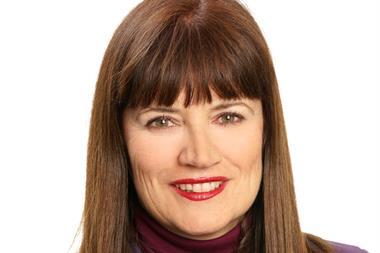
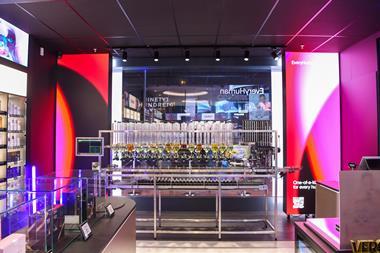
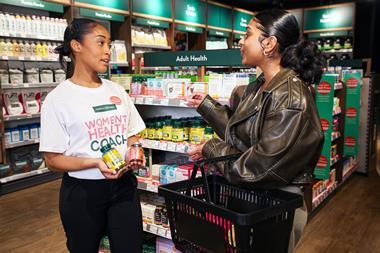
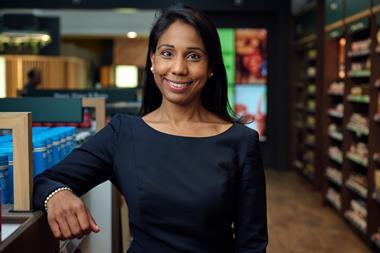
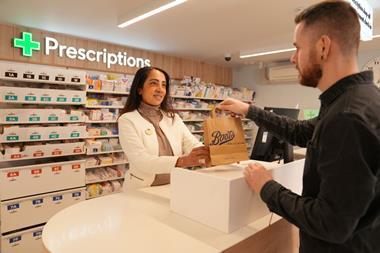

No comments yet